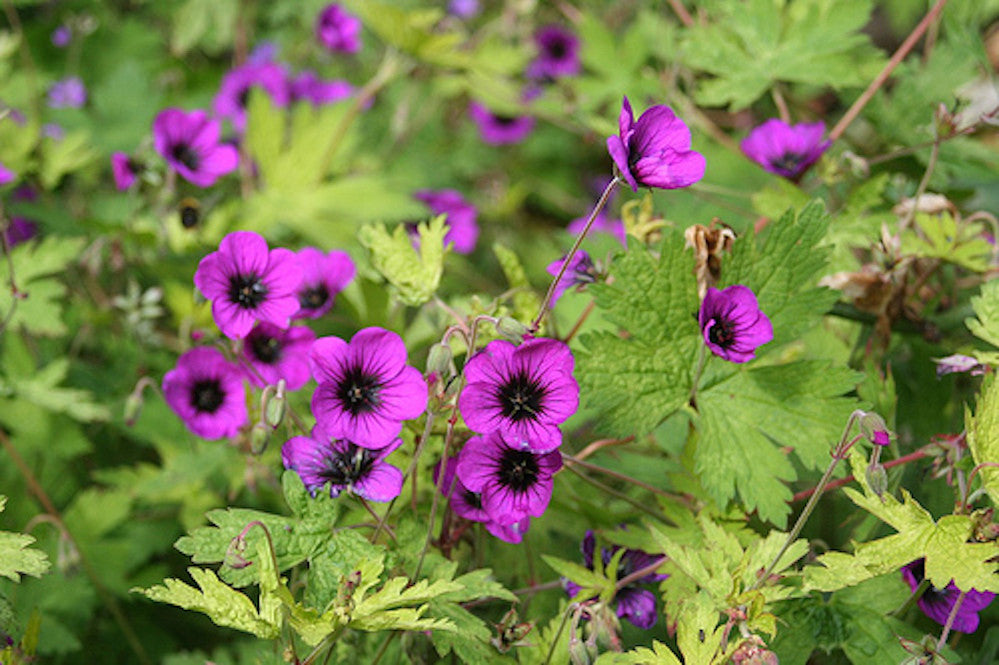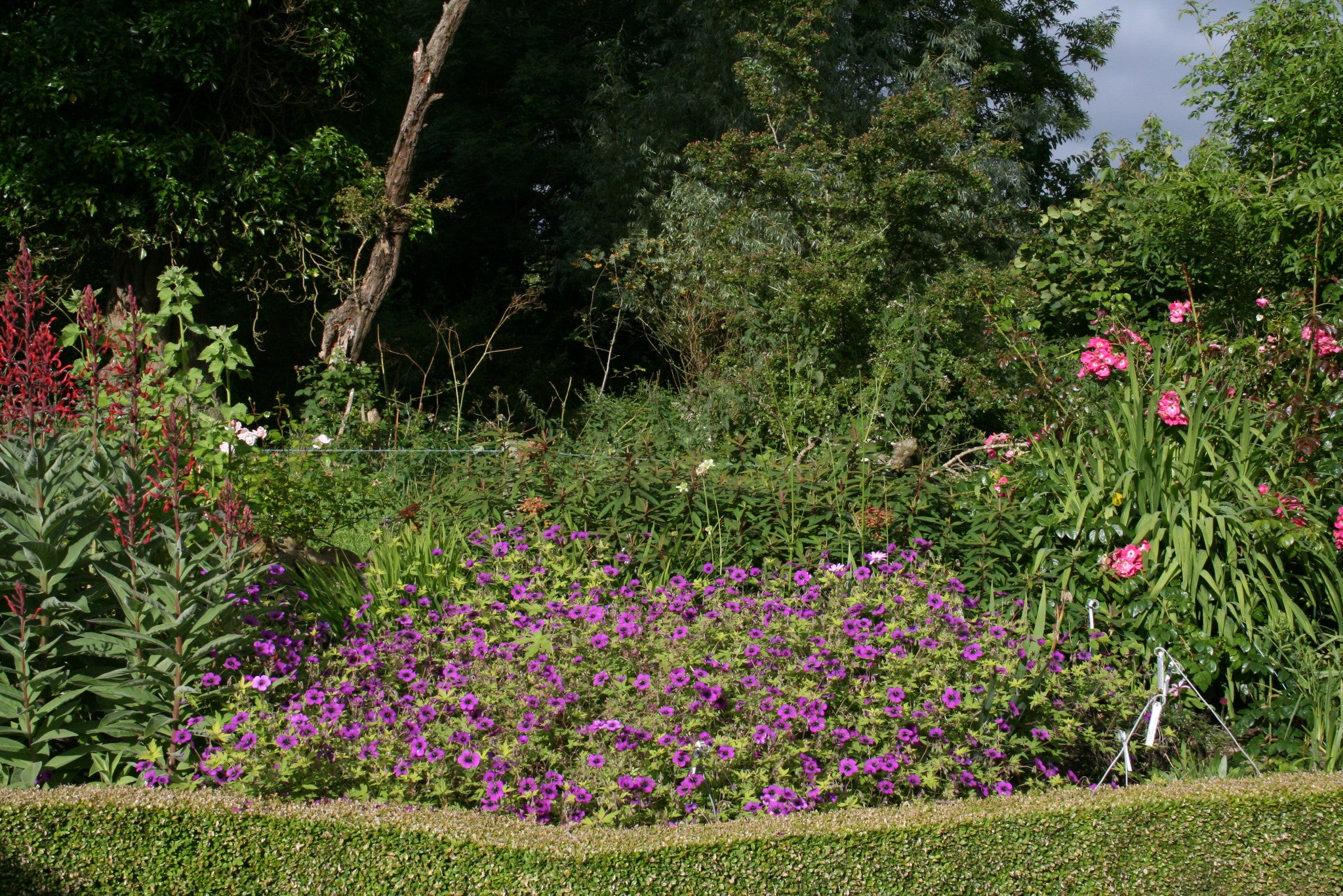Geranium 'Ann Folkard'
Approx. 0.5 litre pot
About this cultivar:
Geranium 'Ann Folkard' is a vigourous, herbaceous perennial of spreading habit with yellowish-green, and black-eyed and veined, magenta-purple flowers. From Rev. Folkard of England, this early 1970's hybrid has traceable parenatege; sprawling habit from Geranium procurrens and its fathers black eyes from Geranium psilostemon.
Foliage emerges yellow-green and darkens as it matures however this seems to vary for place to place and year to year. Some years are greener than others!
Whilst reading the RHS trial report I came across this "Geraniums are not always used very imaginatively in the garden but it was found that growing G. ‘Ann Folkard’ and G. ‘Anne Thomson’ over birch twig supports provided a novel and very attractive means of displaying these plants and was something that might be tried with other geraniums that have a similar scrambling habit."
- Position: Full sun, partial shade
- Soil: Almost any soil, grows well in Ballyrobert
- Flowers: June, July, August
- Other features: Royal Horticultural Society Award of Garden Merit (RHS AGM), Grows well in Ballyrobert
- Hardiness: H7 - Hardy in the severest European continental climates (< -20°C), Fully hardy - grows well in Ballyrobert!
- Habit: Clump forming, bushy, trailing
- Foliage: Deciduous
- Height: 45 - 60 cm (1.5 - 2 ft)
- Spread: 45 - 60 cm (1.5 - 2 ft)
- Time to full growth: 2 to 5 years
- Plant type: Herbaceous Perennial
- Colour: Green, purple, black, yellow
- Goes well with: -
About this genus:
Geranium is a genus of 422 species of flowering plants found throughout the temperate regions of the world and the mountains of the tropics, They come in a variety of shapes and sizes and the five-petaled-flowers can be white, pink, purple or blue, often with distinctive veining. The genus name is derived from the Greek géranos meaning ‘crane’. The common name is‘cranesbill’. Why the crane reference? Well, some species in the Geranium genus have a distinctive mechanism for seed dispersal. This consists of a column which springs open when ripe and casts the seeds some distance. The shape of the unsprung column looks like the bill of a crane- therefore cranesbill!
Geranium is often confused with its close cousin Pelargonium (florist geranium). The two plants were originally lumped into the one genus (genus Geranium), but in the 1780s, the genus Pelargonium was split from Geranium. However, by that time the common name "geranium" for the florists plants was part of the public vernacular and it stuck.
Geraniums are not as flashy as many perennials, but are getting more and more popualr again as newer cultivars become more floriferous and for longer. The attractive foliage of Geraniums, combined with their blendable, butterfly-attracting, spring and summer flowers, make geraniums staples in the perennial garden.
The genus geranium has long been recognized as one of the most durable and easy to grow perennials for the garden. They love sun or part shade and will grow in any soil that isn't waterlogged.
How to use them? Oh, the list is endless and often depends on the specific geranium, its height, habit and colour - they are not just "ground cover" plants!




